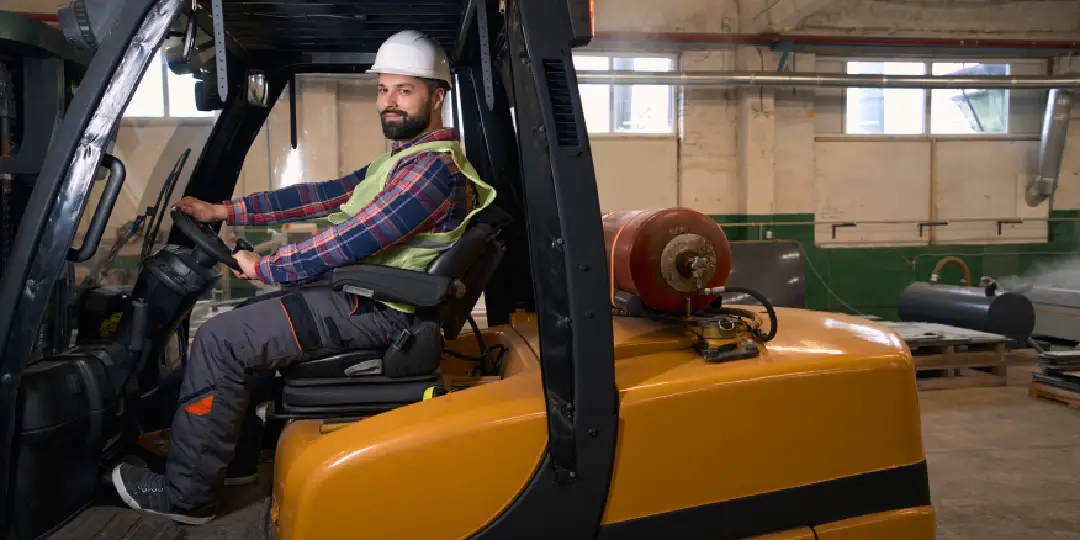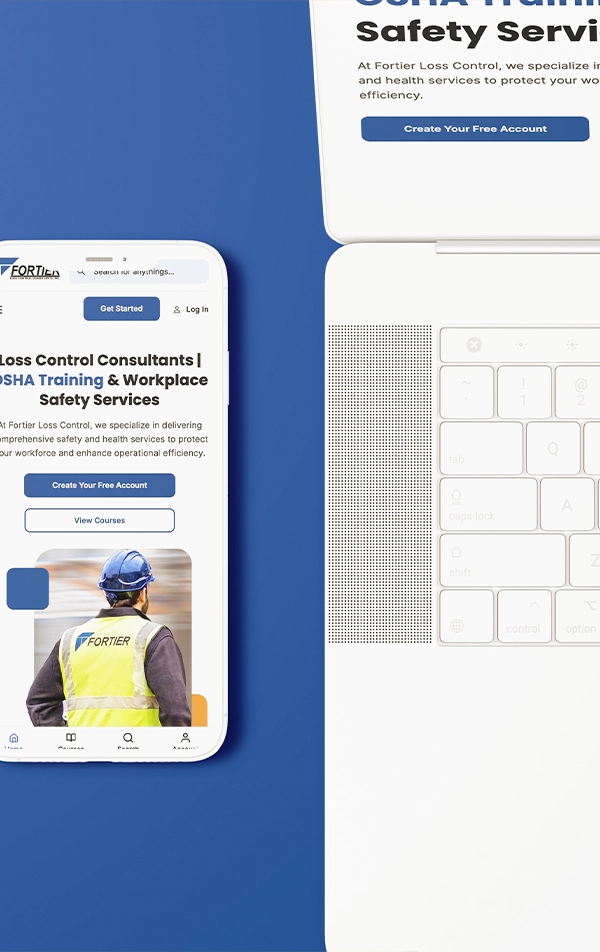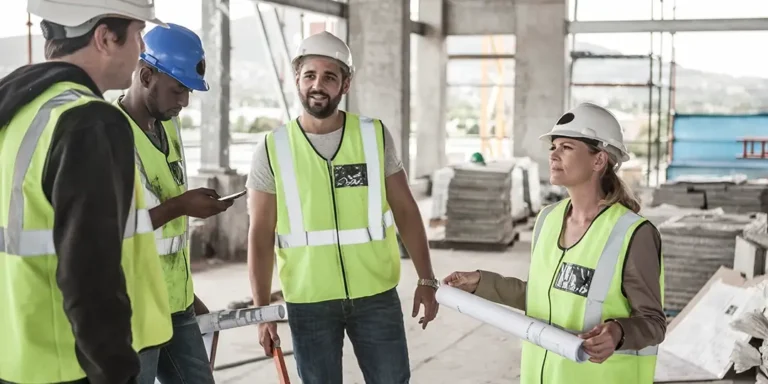Understanding OSHA Compliance for Aerial & Forklift Operations
The Occupational Safety and Health Administration (OSHA) enforces stringent regulations to safeguard workers who operate aerial lifts and forklifts. These guidelines are not mere recommendations; they are unequivocal legal mandates devised to prevent catastrophic incidents, workplace injuries, and fatalities. Compliance is a non-negotiable imperative in industries where heavy machinery operates in complex and dynamic environments. Employers must adhere to these regulations or face severe repercussions—ranging from hefty fines and operational shutdowns to increased liability exposure. This regulatory framework is designed not only to mitigate risks but also to elevate the standard of workplace safety.
Fortier Loss Control exemplifies adherence to OSHA standards by providing meticulously structured training programs. Their curriculum integrates theoretical knowledge with practical, hands-on experience. The training modules encompass comprehensive pre-operation inspections, rigorous assessments of equipment functionality, and robust emergency response drills. This ensures that every operator is well-versed in the minutiae of safety protocols. Enhanced understanding of load capacities, stability dynamics, and potential hazards forms the cornerstone of this training, empowering operators to execute their duties with unwavering confidence and precision.
Furthermore, OSHA mandates periodic recertification to keep pace with evolving standards and technological advancements in equipment operation. Regular re-assessments not only fortify the skill sets of the workforce but also serve as an essential tool for quality assurance. When organizations commit to continuous training, they foster an environment where safety is paramount, and regulatory compliance becomes second nature rather than an afterthought.
The Risks of Inadequate Training in Material Handling
The hazards associated with inadequate training in material handling are multifaceted and profound. A poorly trained operator does not merely jeopardize their own safety but also endangers the well-being of coworkers and the integrity of the workplace environment. Aerial lifts and forklifts, when operated without comprehensive training, can precipitate a litany of accidents including tip-overs, falls, collisions, and the perilous dropping of loads. Such incidents can escalate into severe injuries or even fatalities, leaving a lasting impact on both the human and economic fabric of an organization.
Inadequate training can transform these critical machines into instruments of inadvertent destruction. For instance, operators who lack the nuanced understanding of weight distribution and load balancing may inadvertently initiate a chain reaction leading to a catastrophic tip-over. Moreover, failure to recognize the subtleties of environmental hazards—such as uneven surfaces or congested workspaces—can precipitate collisions that result in both personal injury and significant property damage.
The ramifications extend beyond immediate physical harm. In the aftermath of an accident, organizations often face extensive legal disputes, skyrocketing insurance premiums, and potentially crippling regulatory sanctions. These financial burdens can compound, tarnishing a company’s reputation and undermining its operational viability. Every instance of oversight or miscalculation underscores the critical importance of expert training. A robust training regimen, like that offered by Fortier Loss Control, serves as an essential bulwark against these risks. It transforms hazardous material handling operations into processes that are both efficient and secure, thereby reinforcing a culture of safety and accountability.
Why Fortier Loss Control Stands Out in Nashville, TN
Fortier Loss Control has distinguished itself as a premier provider of aerial and forklift safety training in Nashville, TN. Their unwavering commitment to excellence ensures that businesses receive instruction that is not only compliant with OSHA’s latest regulations but also exceeds industry standards. In a field where safety and precision are paramount, Fortier Loss Control stands as a beacon of reliability, offering programs that integrate expert knowledge with real-world application.
What sets Fortier apart is its team of seasoned safety professionals. These instructors bring decades of hands-on experience, ensuring that trainees receive guidance from individuals who have encountered and resolved the very challenges they are being trained to handle. Unlike generic safety courses that rely solely on theoretical instruction, Fortier Loss Control emphasizes interactive learning. Their curriculum blends classroom-based education with hands-on training in a controlled environment, allowing trainees to develop muscle memory and critical decision-making skills before stepping onto a job site.
Additionally, the training facility is equipped with state-of-the-art machinery that mirrors the equipment operators will encounter in their daily tasks. This real-world simulation approach ensures that trainees gain familiarity with the nuances of different aerial lifts and forklifts, preparing them for various industrial settings. From construction sites to warehouse operations, Fortier Loss Control’s programs empower workers with the expertise to operate heavy machinery safely and efficiently.
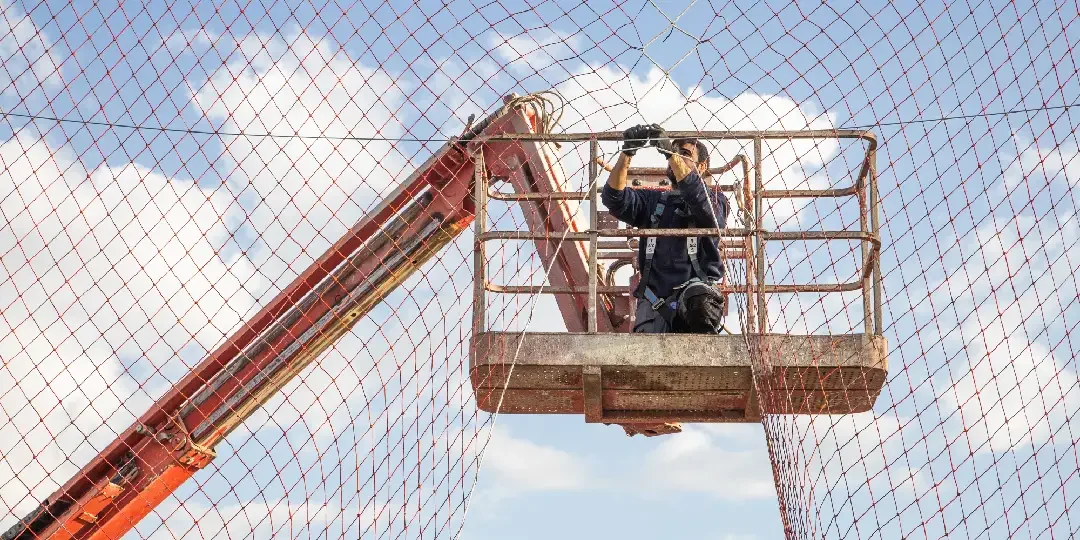
Comprehensive Aerial Lift Training: What to Expect
Aerial lifts, including scissor lifts, boom lifts, and articulated lifts, are indispensable in industries that require work at elevated heights. However, improper operation of these machines poses significant risks, including falls, tip-overs, and entanglements. Fortier Loss Control’s aerial lift training program is designed to mitigate these dangers through an exhaustive curriculum that covers every aspect of safe operation.
Key Components of the Training:
- Equipment Familiarization: Operators receive in-depth instruction on various aerial lift types, their specific applications, and operational limitations. Understanding the differences between scissor lifts and boom lifts is crucial for ensuring the right equipment is used for the job at hand.
- Pre-Operation Inspections: Before use, thorough inspections are necessary to identify mechanical faults, hydraulic issues, or electrical malfunctions that could compromise safety. Fortier’s training emphasizes a step-by-step approach to pre-use inspections, ensuring that operators can detect and address potential hazards before they escalate.
- Safe Maneuvering Techniques: Navigating confined spaces, handling obstructions, and operating on uneven terrain all require precision. Fortier’s hands-on training helps operators develop the skill to maneuver aerial lifts efficiently without compromising safety.
- Fall Protection Strategies: Falls remain one of the leading causes of workplace fatalities. The training program includes comprehensive instruction on harness use, anchoring techniques, and best practices for mitigating fall risks.
- Emergency Response Drills: In the event of equipment failure, power loss, or an emergency evacuation, operators must be prepared to act swiftly. Fortier’s training incorporates real-world drills to ensure that workers know exactly how to respond under pressure.
By the completion of this course, trainees will possess a well-rounded skill set that enables them to handle aerial lifts safely and effectively. Employers who invest in this training not only ensure OSHA compliance but also foster a workplace culture where safety is second nature.
Forklift Safety Training: A Deep Dive into Best Practices
Forklifts are a cornerstone of material handling operations, yet they also rank among the leading causes of workplace injuries. Unsafe forklift operation can result in tip-overs, struck-by incidents, and load instability, all of which pose severe risks to both operators and nearby personnel. Fortier Loss Control’s forklift safety training is meticulously structured to eliminate these risks through rigorous instruction and hands-on experience.
Key Components of the Training:
- Load Capacity and Stability: One of the most critical aspects of forklift operation is understanding weight distribution. Overloading or improperly placing a load can cause a forklift to tip over. Fortier’s training ensures operators fully grasp the principles of load stability and weight limits.
- Navigation Techniques: Driving a forklift is vastly different from operating a standard vehicle. Trainees learn proper reversing methods, how to maneuver in tight warehouse aisles, and techniques for safely ascending and descending ramps.
- Hazard Identification: Operators must be acutely aware of workplace risks, including pedestrian movement, blind spots, and uneven flooring. Through immersive training scenarios, Fortier Loss Control instills proactive hazard awareness in every trainee.
- Maintenance and Inspection: Preventive maintenance is crucial for ensuring forklift longevity and operational safety. Operators are trained to conduct routine inspections, identifying mechanical faults before they result in operational failures.
- Emergency Protocols: From sudden mechanical malfunctions to rollovers, operators must be prepared to respond decisively. Fortier’s training incorporates emergency drills that equip trainees with the knowledge to act swiftly and minimize risk in crisis situations.
By providing a structured, in-depth forklift training program, Fortier Loss Control ensures that operators not only comply with OSHA regulations but also develop a level of expertise that enhances overall workplace efficiency.
Hands-On Instruction: Bridging Theory and Practical Application
Mastering aerial lift and forklift operations requires more than theoretical knowledge. Simply reading a manual or attending a lecture does not equip operators with the situational awareness and dexterity necessary to handle heavy machinery in dynamic work environments. Fortier Loss Control recognizes this gap and has designed its training programs to integrate hands-on instruction, ensuring that participants actively engage with equipment under expert supervision.
A key component of this methodology is simulated worksite scenarios that mirror real-world challenges. These controlled exercises allow trainees to practice navigating confined spaces, handling uneven terrain, and responding to unexpected obstacles. By immersing trainees in practical situations, Fortier Loss Control reinforces technical knowledge while simultaneously enhancing decision-making skills. This approach helps operators internalize best practices, ensuring they react instinctively and correctly when faced with high-pressure situations on the job.
Moreover, hands-on training significantly boosts operator confidence. Many workplace accidents stem from hesitation or uncertainty, particularly in high-risk scenarios where split-second decisions matter. By providing a safe and controlled environment for trainees to refine their skills, Fortier Loss Control minimizes these risks, producing operators who are not only technically proficient but also self-assured in their ability to handle complex machinery safely and efficiently.
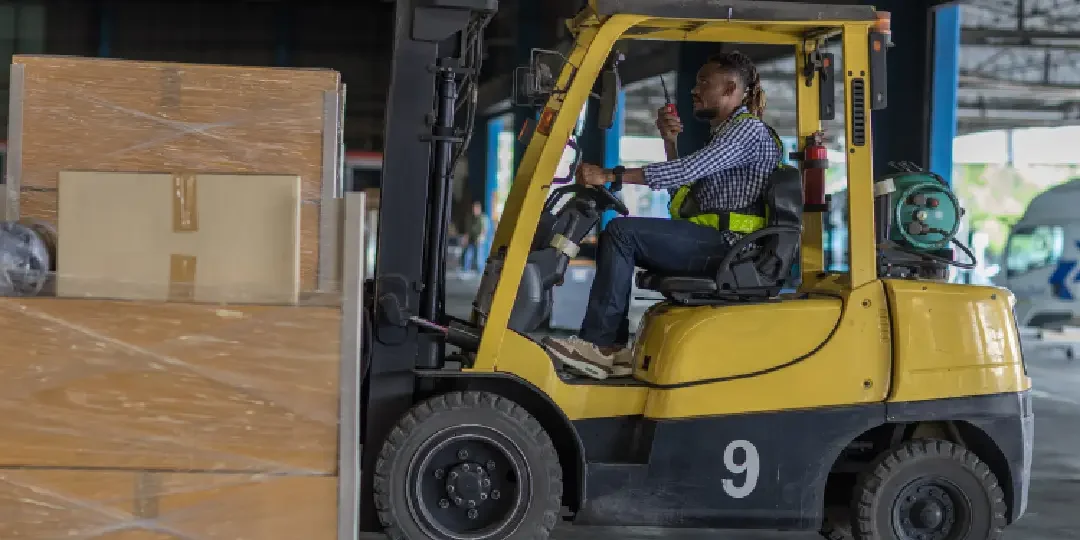
Certification and Recertification: Staying Up to Date with OSHA Standards
Certification is not optional for aerial lift and forklift operators—it is a legal requirement mandated by the Occupational Safety and Health Administration (OSHA). Before an operator is permitted to handle equipment, they must complete an accredited training program that covers both theoretical instruction and hands-on application. However, OSHA’s requirements do not stop at initial certification. Regular recertification is essential to ensure that operators remain compliant with evolving industry regulations and safety protocols.
Fortier Loss Control streamlines this process by offering structured recertification programs that allow operators to refresh and update their skills without disrupting workplace productivity. These programs include:
- Regulatory Updates: OSHA periodically revises its guidelines to incorporate new safety insights and technological advancements. Recertification ensures that operators stay informed about these changes.
- Performance Assessments: Operators undergo evaluations to confirm that they retain proficiency in equipment handling, workplace safety, and hazard identification.
- Advanced Training Modules: As new equipment and operational techniques emerge, recertification introduces operators to modernized best practices.
- Corrective Training: If an operator has been involved in a workplace incident or displays unsafe behavior, recertification provides an opportunity for targeted retraining.
By prioritizing continuous education, Fortier Loss Control helps businesses maintain an OSHA-compliant workforce while fostering a culture of ongoing professional development. Operators who regularly update their skills not only enhance workplace safety but also contribute to greater operational efficiency.
The Role of Employer Responsibility in Workplace Safety
While training programs equip employees with essential skills, the responsibility for workplace safety does not rest solely on individual operators. Employers play a critical role in ensuring that safety protocols are upheld, risks are mitigated, and OSHA compliance is maintained. Neglecting these responsibilities can lead to severe consequences, including regulatory citations, financial penalties, legal liabilities, and—most importantly—compromised worker safety.
Fortier Loss Control partners with businesses to create customized training solutions that align with their specific operational needs. This proactive approach allows employers to:
- Implement Comprehensive Safety Policies: Establish clear procedures for aerial lift and forklift operation, including pre-use inspections, maintenance protocols, and emergency response plans.
- Ensure Employee Compliance: Regular training reinforces safety standards, reducing the likelihood of negligence or procedural lapses.
- Mitigate Liability Risks: Investing in high-quality training demonstrates a commitment to employee safety, which can serve as a protective measure in legal disputes or OSHA investigations.
- Foster a Culture of Safety: When employees feel that their well-being is a priority, they are more likely to adhere to safety protocols, report hazards, and contribute to a secure work environment.
By integrating Fortier Loss Control’s training programs into their safety initiatives, employers not only fulfill their legal obligations but also cultivate a workplace where employees feel valued and protected. Safety becomes a shared responsibility—one that enhances productivity, reduces accidents, and ensures long-term operational success.
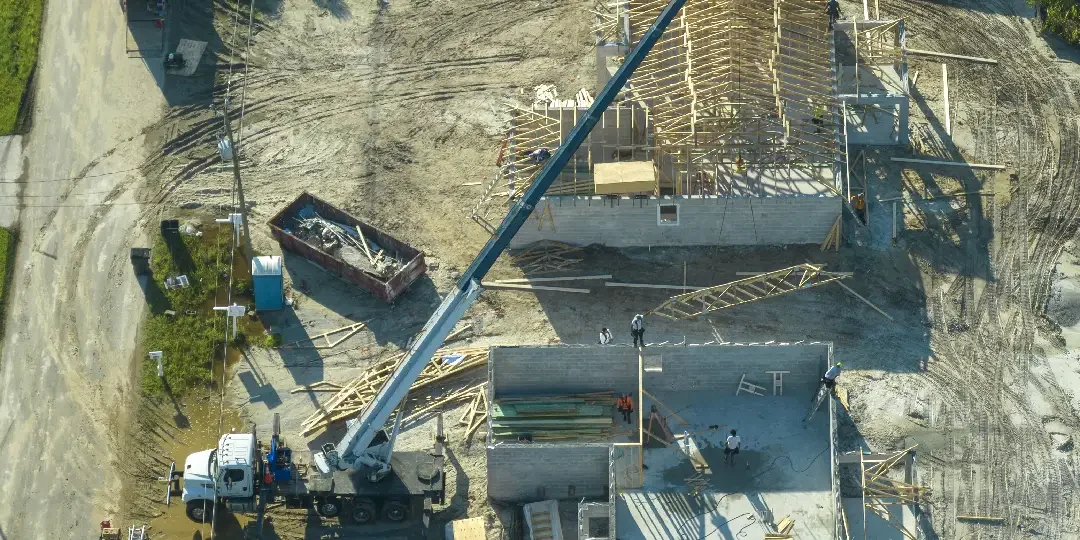
Frequently Asked Questions
1. Why is OSHA-compliant training essential for aerial lift and forklift operators?
OSHA mandates that all aerial lift and forklift operators receive proper training to ensure workplace safety and compliance with federal regulations. Without certification, businesses face significant risks, including costly fines, liability for workplace accidents, and increased insurance premiums. Proper training not only helps avoid these penalties but also ensures operators can handle equipment safely, reducing the likelihood of injuries and equipment damage.
2. How often do operators need to be recertified for forklift and aerial lift operation?
OSHA requires forklift and aerial lift operators to be recertified at least every three years. However, immediate retraining is necessary if an operator is involved in an accident, observed using equipment improperly, or if workplace conditions change significantly. Fortier Loss Control offers seamless recertification programs that keep operators up to date with the latest safety standards and best practices.
3. What sets Fortier Loss Control’s training apart from other programs in Nashville, TN?
Fortier Loss Control provides hands-on, expert-led training that goes beyond basic compliance. Their state-of-the-art training facility offers real-world scenario simulations, ensuring that operators gain practical experience in maneuvering equipment safely. With a team of experienced safety professionals, customized training programs, and a focus on OSHA’s latest regulations, Fortier Loss Control ensures businesses receive the highest level of safety education available in Nashville, TN.
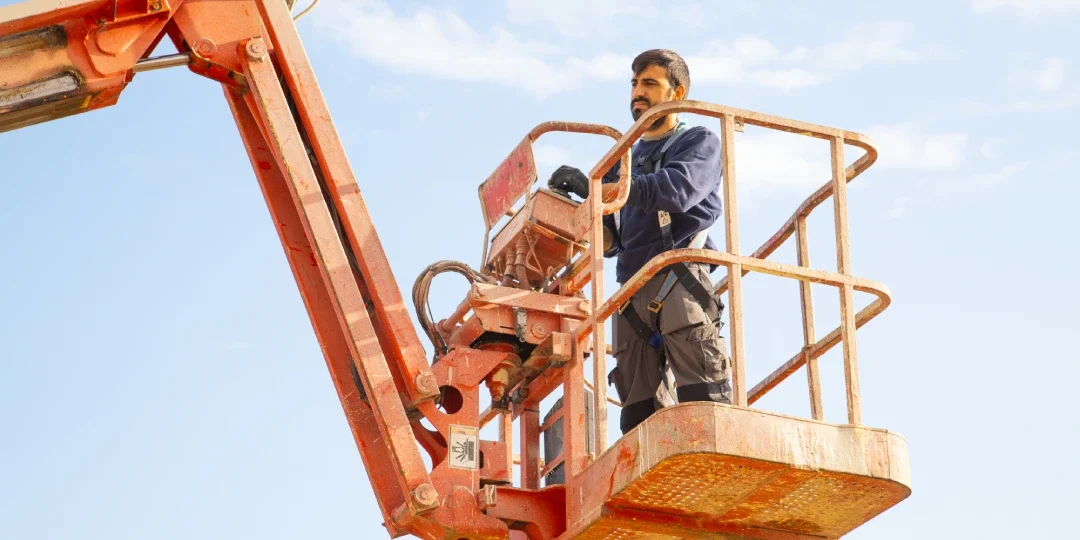
Conclusion
Staying OSHA-compliant is not just a regulatory requirement—it is a vital investment in workplace safety, efficiency, and long-term business success. Fortier Loss Control stands out as Nashville’s premier provider of expert aerial lift and forklift training, equipping operators with the hands-on skills and knowledge necessary to minimize risks and enhance productivity. Through comprehensive instruction, real-world simulations, and ongoing recertification programs, Fortier Loss Control ensures that businesses remain compliant while fostering a culture of safety and professionalism.
By prioritizing proper training, companies not only protect their workforce but also reduce liabilities, prevent costly accidents, and improve operational efficiency. Whether you’re certifying new operators or keeping experienced workers up to date, Fortier Loss Control provides the expertise needed to meet OSHA standards with confidence. Investing in high-quality training today ensures a safer, more productive tomorrow.

